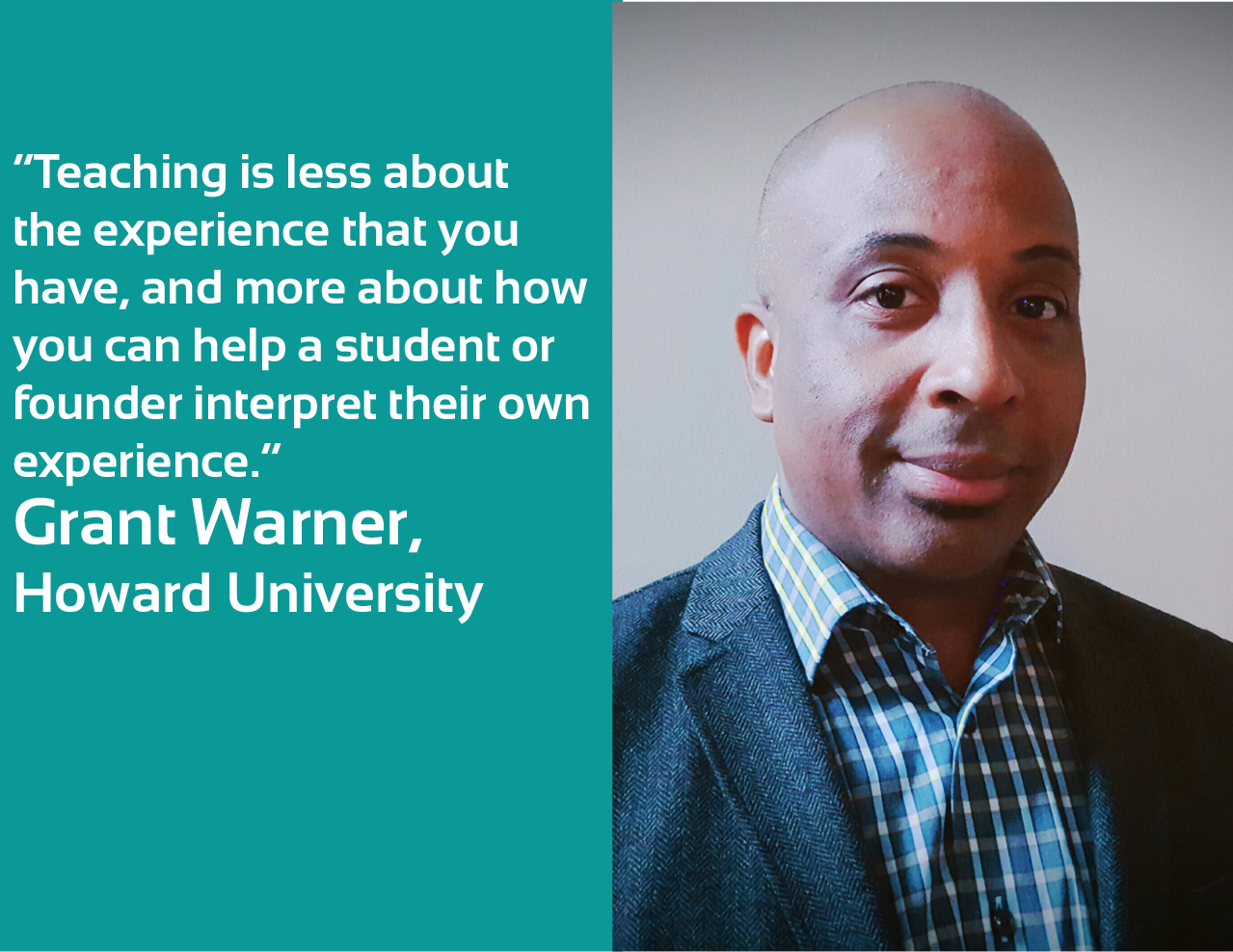
This week we continue our series highlighting educators within the VentureWell network who are doing good work—faculty members that are challenging norms in higher education and inspiring students to impact the world through invention.
This month’s faculty spotlight is Grant Warner, Associate Professor of Mechanical Engineering and Director of Innovation for the Graduate School at Howard University. He has helped deploy campus-wide programming in innovation, including the Bison Startup and Bison Accelerate courses, in which students are guided through the process of founding technology startups. Warner is an active member of VentureWell’s community, participating in Pathways in Innovation and National Innovation Network (NIN) programs, and serving as a Principal Investigator for an E-Team grantee.
How did you get interested in teaching entrepreneurship?
I have been involved with starting several companies dating back to my time in graduate school. Some have had success, others have failed, but they all have been learning opportunities. The startup experience for my last company, ConnectYard, was so enlightening that I wanted to share that with students. The process of building the business and understanding more deeply where the innovation could best be leveraged mirrored many parts of the Lean LaunchPad® process. The Lean Launchpad methodology was also gaining popularity at that time. It provided a great framework to introduce entrepreneurship on campus.
What is your favorite thing about teaching?
Teaching provides a dynamic work environment. Every year there are new personalities injected into the ecosystem that see different opportunities and different challenges. It’s great fun to interact with that energy.
Where would you like to see the field of entrepreneurship in five years?
I would like to see the field of entrepreneurship be more inclusive. The lack of institutional investment in female-led and minority-led startups is well documented and has to change. Howard University, Hampton University, and the Atlanta University Consortium (Morehouse, Spelman, Clark Atlanta, and Morehouse School of Medicine) are partnering to change that dynamic.
What traits make for great teachers, advisors, and mentors?
While each of these roles has unique requirements, there is an overarching need that a person be empathetic in order to excel in any of the roles. It is less about the experience that you have, and more about how you can help a student or founder interpret their own experience. In education there’s been a shift from “sage on the stage” to “guide on the side” that aligns with the empathetic world view. Likewise, a large portion of the Lean Startup methodology is about helping founders gain empathy.
What books on entrepreneurship and innovation have you been reading lately?
A large part of my interest in entrepreneurship is driven by the economic transformation that entrepreneurship can enable. Along those lines, my recent reading has not been in entrepreneurship, per se. I have been reading Who Stole the American Dream? by Hedrick Smith. It talks about the widening wealth gap and what that means to opportunity and access. The startup story, in my view, is about creating new pathways for opportunity. That’s why I find the context of the book motivating.
What’s your most useful classroom activity or assignment?
We just started classes at Howard University. I used Stanford d.school’s wallet exercise with a group of mechanical engineering students enrolled in the Capstone Design/Senior Project. It emphasizes the importance of developing empathy, leveraging short design sprints, and building low fidelity prototypes. All of those are important lessons for the class and their professional careers moving forward. I enjoy that activity since it can be used with many audiences.